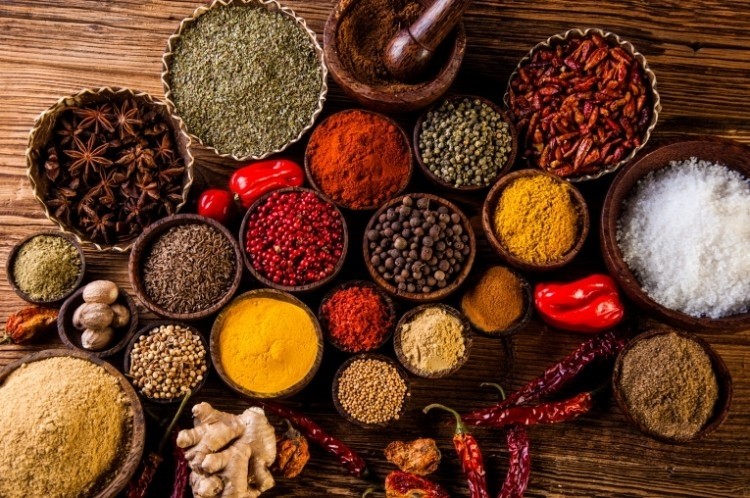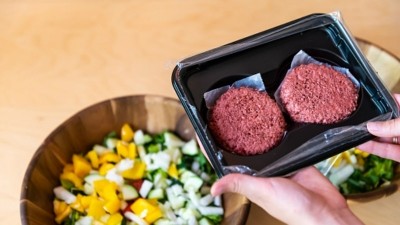Anti-colorectal cancer effects of spice compounds warrant further human study: Review

Globally, CRC is the second most frequent cause of cancer-related mortality among all types of malignancies. Current therapeutic approaches have been unsuccessful in controlling its incidence and prevalence.
At the same time, gut microbiota alterations that affect immune response have been positively correlated with colorectal carcinogenesis. As such, CRC prevention has received more attention, with the gut microbiota being studied in relation to the relationship between dietary factors and CRC incidence.
Spices and their bioactive compounds have been found to alter the balance of gut microbial species through the decrease of dysbiotic strains and increase of eubiotic strains, though few studies have looked into their ability to help prevent colorectal cancer.
Based on this, researchers in China, Pakistan, Italy, Spain and Brazil conducted a review to highlight how spices may help to prevent cancer via their role in gut microbial modulation.
Spice up your gut
Both in-vitro and in-vivo studies have reported the anti-oxidative, anti-inflammatory and anti-microbial properties of spices, along with their potential to stimulate digestion and prevent or control diseases like diabetes and cancer.
These studies have shown that different spices and their bioactive compounds may have immunomodulatory effects, as well as the ability to modulate the gut microbiota and in turn, prevent cancer pathogenesis.
Curcumin, for instance, has been found to directly influence gut microbiota by “increasing the ratio of beneficial bacteria compared to pathological ones”, some of which have been reported as being higher in CRC patients than in cancer-free patients.
A US study demonstrated ginger rhizome’s active constituents’ “anti-proliferative activity against various forms of gastrointestinal cancer”, while other studies found that the oral ingestion of ginger extract modulated the gut microbiota by reducing inflammation and the population of pathogenic bacteria, thereby helping to prevent CRC.
Clove, on the other hand, possesses broad phytochemistry and biological activities that give it therapeutic potential to prevent various cancers and other diseases. A study by Beijing’s Capital Medical University reported that “ethyl acetate extract of cloves demonstrated anti-tumour activity both in in-vivo and in-vitro models”; the researchers also suggested it could be used as a therapeutic herb to treat CRC.
A Brazilian study attributed flaxseed’s immunomodulatory properties to “prebiotic effects” and reported that it maintained the intestinal epithelial barrier’s integrity through its anti-inflammatory properties. It further noted that flaxseed promoted the growth of beneficial bacteria that could help to prevent the development and pathogenesis of CRC. However, ground flaxseeds were also found to worsen intestinal inflammation.
Chilli pepper-derived compounds have also demonstrated positive effects on cancer and cancer risk. A UK study on 512,000 adults found a positive correlation between greater spice consumption and lower GI cancer risk over a five-year period. Still, when it came to CRC, the association between spice consumption and cancer risk was less clear.
The spice must flow
Despite the aforementioned research having reported a positive relationship between the benefits of bioactive spice-derived compounds on gut microbiota and reduced CRC risk, the review noted that “studies on gut microbial modulation by spice-derived phytochemicals in CRC are still very limited”.
In fact, certain spice-derived phytochemicals have been found to exacerbate gut dysbiosis and intestinal inflammation, including saffron and ground flaxseeds. As such, further exploration of the link between spice-derived compounds and gut microbiota, as well as its impact on CRC, is warranted.
Furthermore, the data reviewed was based largely on pre-clinical studies, meaning “robust clinical trials” were required to establish how spices and CRC patients’ other dietary components or medications would interact.
At the same time, spice-derived phytochemical testing in cell cultures and animal studies represent pharmacological therapeutic intervention instead of a dietary preventive approach and as such, tend to use far higher doses than one would consume regularly.
Hence, the review concluded that future studies must test spice-derived compounds “within the range of dietary doses to assess the actual potential of dietary spices to prevent CRC via gut microbial modulation”.
Source: Cancers
https://doi.org/10.3390/cancers14225682
“Spice-Derived Bioactive Compounds Confer Colorectal Cancer Prevention via Modulation of Gut Microbiota”
Authors: Marco Dacrema, et al.



















